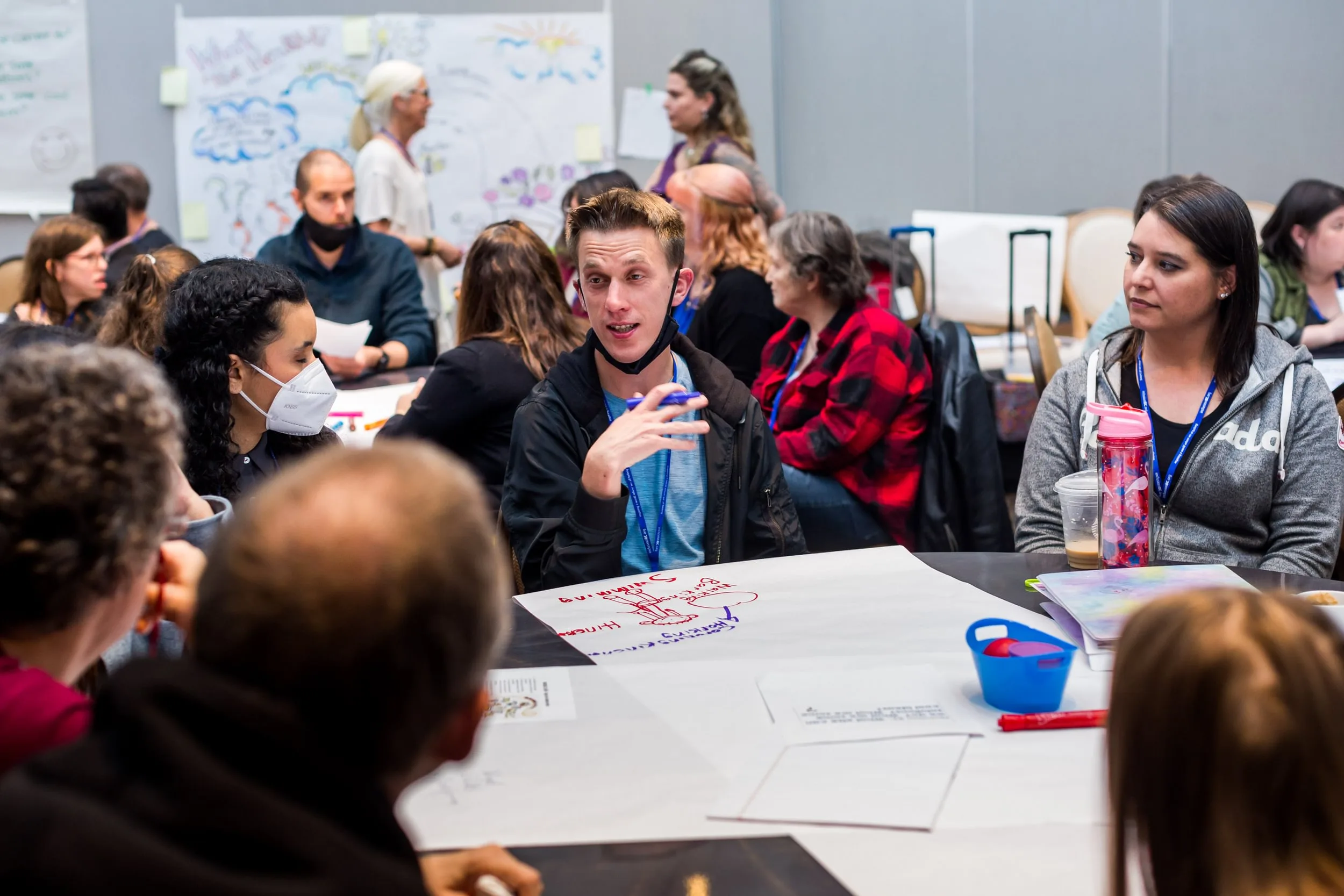As we bring the Employer Outreach Project to a close, we want to take a moment to acknowledge the incredible employers, community partners, and job seekers who have made this initiative a success. Over the past three years, we have worked alongside businesses across British Columbia, supporting them in their efforts to create more inclusive workplaces and explore the benefits of hiring people with intellectual and developmental disabilities.
Through countless conversations, events, and partnerships, we’ve had the privilege of learning from employers about both the successes and the challenges they’ve faced in their inclusion efforts. This project was designed to foster meaningful change, and thanks to the dedication of those involved, we have seen workplaces transform, misconceptions shift, and inclusive hiring practices grow.
Key Themes from Employers
Employers shared valuable insights about their experiences, highlighting both the benefits of inclusive hiring and the barriers they faced along the way.
Common Barriers to Inclusive Hiring
While many employers were open to hiring inclusively, they also expressed concerns that made them hesitant to move forward. Some of the most common challenges included:
Stigma and Beliefs:
Misconceptions about the abilities of people with disabilities were a major barrier. Some employers were unsure whether candidates could meet job expectations or feared that customers or staff might not be supportive.
Safety:
Employers, particularly in trades and labor-intensive sectors, worried about workplace safety and whether accommodations could be made without increasing risk.
Cost:
Some businesses were concerned about the financial implications of accommodations, training, and potential productivity adjustments.
Liability:
Employers in various industries raised legal concerns, including how to navigate duty-to-accommodate policies and potential liability risks.
Transit:
In regions with limited public transportation, getting employees to and from work was a logistical challenge that impacted hiring decisions.
Policies:
Some employers faced internal policies that unintentionally created barriers to hiring inclusively, such as strict job descriptions or rigid hiring processes.
Support:
Many businesses wanted guidance on how to properly support employees with disabilities and worried about finding the right resources.
Disclosure:
Employers were uncertain about when and how to ask about an employee’s disability and what they could legally discuss.
Skill Level:
Employers in specialized fields were unsure if they could find candidates with the right skills or training to meet job demands.
Training for Existing Employees:
Some employers hesitated to hire inclusively because they felt their current staff lacked awareness or training on how to be inclusive colleagues.
The Positive Impact of Inclusive Hiring
Despite these challenges, employers who embraced inclusive hiring shared overwhelmingly positive experiences. Several key themes emerged from their success stories:
A Stronger Workplace Culture:
Businesses consistently reported that hiring people with disabilities improved team morale, increased empathy, and strengthened collaboration.
Training Builds Confidence:
Many businesses overcame their initial hesitations through training and education. Once they better understood disability inclusion, they felt more prepared and willing to hire.
Small Accommodations, Big Impact:
Employers were surprised to find that most accommodations were minor and low-cost—but made a significant difference in employee success.
A Business Advantage:
Beyond doing the right thing, employers saw tangible benefits, including higher employee retention, increased customer loyalty, and positive brand reputation.
Looking Ahead
While the Employer Outreach Project is wrapping up, the work of building inclusive workplaces is far from over. Thanks to the insights gathered through this initiative, we have a clearer understanding of what employers need to feel confident in hiring inclusively and how to continue addressing barriers. We will continue transferring the knowledge from this project into our next initiatives to ensure inclusive hiring keeps on growing to make a stronger B.C.
To all the businesses, human resources professionals, agency partners, and job seekers who participated in this journey—thank you!
To learn more from five communities who participated in the project, watch the videos below
Described video version – Richmond
Described video version – Victoria
Described video version – Duncan


